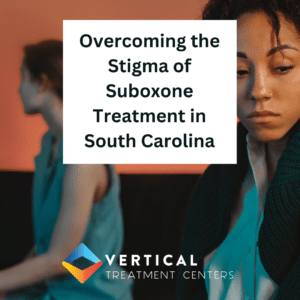
Overcoming the Stigma of Suboxone Treatment in South Carolina
Opioid addiction is a major public health crisis in the United States, affecting millions of individuals and families. South Carolina is no exception — drug overdose deaths rose by 28.3% between 2015 and 2016, according to state health records. While many people are taking action against this growing epidemic, there is still a stigma surrounding treatments such as Suboxone. It’s important that we understand the history and causes of these stigmas in order to successfully combat them.
Exploring The Roots Of The Stigma
One reason why this stigma exists is because of the common misconceptions around addiction and opioid abuse. People tend to think that addiction is a moral failure or lack of willpower rather than an illness, which keeps individuals from seeking treatment out of fear of judgement or shame. Furthermore, many believe that medications like Suboxone are just replacing one drug with another, when in actuality they can be effective tools for managing cravings and withdrawal symptoms without getting high or feeling intoxicated due to its low dosage method of delivery. Although medical professionals have proven time and time again that medications like Suboxone can be effective for recovery, these biases continue to persist among certain communities across South Carolina — even though using medication-assisted treatment (MAT) has been proven to reduce mortality rates by over 50%.
Strategies To Combat The Stigma In South Carolina
Fortunately, there are proactive steps being taken across the state to challenge these stigmas head on. One way we can combat this stigma is by creating an open dialogue about treatment options such as MATs while addressing any questions or concerns communities may have about them. It’s also important that we raise awareness by educating the public on why MATs are so effective while encouraging everyone to use less stigmatizing language when discussing issues related to substance abuse. Additionally, it’s important that we celebrate recovery milestones no matter how big or small – whether someone has stayed sober for 30 days or 3 years – as this reinforces positive behavior and shows others that recovery really is possible with help from supportive friends and family members along with the proper resources in place.
Conclusion
Opioid addiction has become an epidemic in our country— but it doesn’t have to be this way if we take action now. We need to start by understanding some of the misconceptions behind MATs such as Suboxone and actively work together to reduce harmful language about opioid abuse within our communities — then we can begin tackling the problem at its root cause instead of masking it with stigma every step of the way. With support from friends, family members—and access to quality care—we can help those suffering from substance abuse disorders overcome their addictions in a safe and supportive environment here in South Carolina.